








The Orchard on the Brazos
Verified Center
This provider's information has been quality-checked by Recovery.com's Research Team for accuracy and completeness, including center verification through appropriate third-party organizations.
Treatment Focus
This center treats substance use disorders and mental health conditions. You'll receive individualized care catered to your unique situation and diagnosis, learn practical skills for recovery, and make new connections in a restorative environment.
Primary Level of Care
Offering intensive care with 24/7 monitoring, residential treatment is typically 30 days and can cover multiple levels of care. Length can range from 14 to 90 days typically.
Treatment Focus
This center treats substance use disorders and mental health conditions. You'll receive individualized care catered to your unique situation and diagnosis, learn practical skills for recovery, and make new connections in a restorative environment.
Primary Level of Care
Offering intensive care with 24/7 monitoring, residential treatment is typically 30 days and can cover multiple levels of care. Length can range from 14 to 90 days typically.
Provider's Policy
If you or your loved one is ready to begin treatment at The Orchard on the Brazos, fill out the form to get started. We work with most insurance plans with “out of network” benefits. Our process includes a free and confidential insurance verification to determine if there are benefits which can be applied towards your care.
The Orchard on the Brazos
The Orchard on the Brazos
About The Orchard on the Brazos
Just outside of Houston, Orchard on the Brazos is a detox and residential treatment center designed for individuals who are ready to embrace lasting change and meaningful growth. With a warm “home away from home” atmosphere, their full continuum of care guides each client from stabilization to long-term recovery.
Move from Surviving to Thriving—One Pillar at a Time
At The Orchard on the Brazos, recovery is about rediscovering purpose, reconnecting with self and others, and learning how to truly live again. Through their 3-pillar approach—Recover, Explore, Live—clients move beyond surface-level healing. This begins with understanding the nature of addiction and uncovering what led them here. Clients are encouraged to explore spiritual connection in a way that feels authentic to them. With an emphasis on relapse prevention and aftercare planning, they empower clients to begin again with courage.
Relax in a Home away from Home
On 132 acres just west of Houston, Orchard on the Brazos offers a place to feel truly at home. With its farmhouse-style residences set under sprawling oak trees, the center feels like a quiet, private village. Clients enjoy private, resort-style accommodations, chef-prepared meals, and daily housekeeping, so they can focus entirely on recovery, not routine. Whether they walk along the Brazos River, cast a line into the fishing pond, or unwind after therapy with yoga or a swim, the Orchard surrounds each client with comfort.

Highlights from the Center
Highlights
These highlights are provided by and paid for by the center.
Therapeutic Location
Certified Professionals
Private Rooms Only
Center Overview
Treatment Focus
This center treats substance use disorders and mental health conditions. You'll receive individualized care catered to your unique situation and diagnosis, learn practical skills for recovery, and make new connections in a restorative environment.
Joint Commission Accredited
The Joint Commission accreditation is a voluntary, objective process that evaluates and accredits healthcare organizations (like treatment centers) based on performance standards designed to improve quality and safety for patients. To be accredited means the treatment center has been found to meet the Commission's standards for quality and safety in patient care.

The Orchard on the Brazos
Insurance Accepted
Cash Pay Rates
Estimated Cash Pay Rate
Center pricing can vary based on program and length of stay. Contact the center for more information. Recovery.com strives for price transparency so you can make an informed decision.




Recovery.com Verified Listing
Recovery.com verified that the name, location, contact information and license to operate for this treatment provider are valid and up-to-date.

Joint Commission Accredited

Licensed - State of Texas
Recovery.com is an independent, third-party mental health resource. Verification does not imply endorsement and does not guarantee the quality of treatment services.
Meet Your Care Team
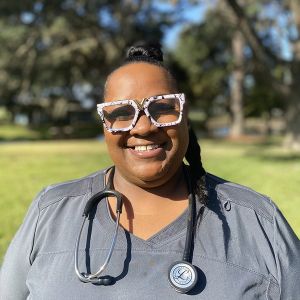
Cinnamon Routt
Nurse
LVN
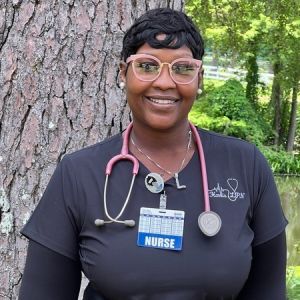
Shantria Harris
Nurse
LVN

Kalisha Gilchrist
Nurse
LVN

Tiffanie Richards
Nurse
LVN

Monique Edwards
Nurse
LVN

Blessing Omozuwa
Nurse
LVN
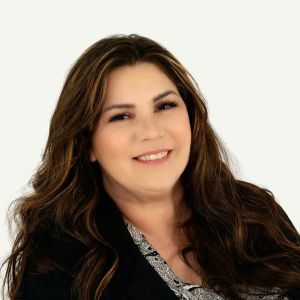
Deborah Carlton
Clinical Compliance Director
MS, LPC, LCDC

Jim Matson
Mental Health Counselor
LCSW

Ron Saenz
Mental Health Counselor
LPC-S

Clayton Goldberg
Counselor
LCDC

Kelly Senf
Counselor
LCDC
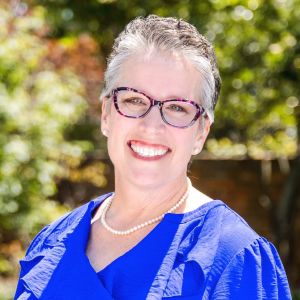
Nicole Priesmeyer
Family & Individual Therapist
LCSW

David Aron
Mental Health Counselor
LCSW, LCDC

Taylor Shaw
Group Therapist
LCSW

Jessica Falco
Counselor
LCDC-I
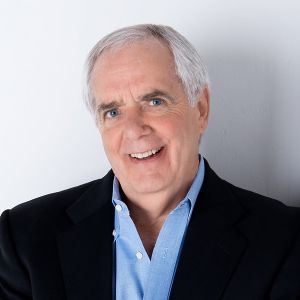
Scott F. Basinger
Program Consultant
PhD

Jayne Dove
Director of Admissions
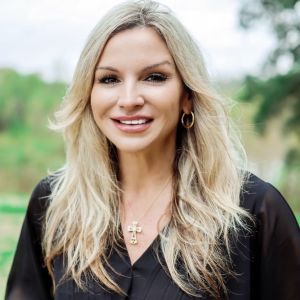
Fallon Harris
Resident Advocate
LCDC-I
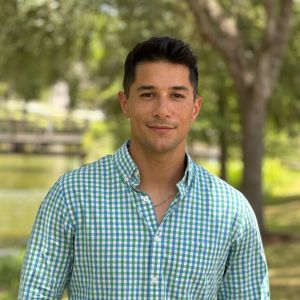
Spencer Arellano
Tech Manager
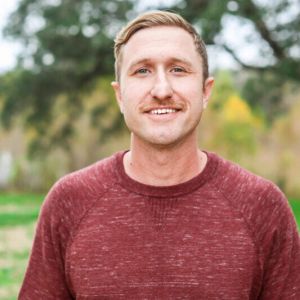
Garret Dove
Tech, Certified Personal Trainer
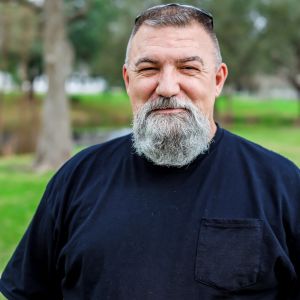
Eddie Wielenga
Tech

Brandi Johnston
Tech

Abigail Hatfield
Tech
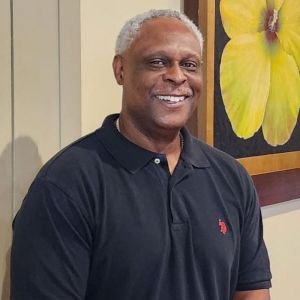
Keith Walker
Tech

Lenny Karpov
Tech
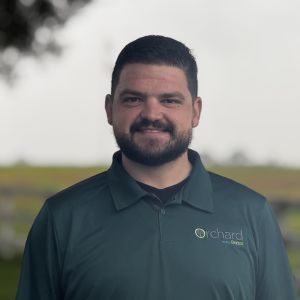
Keaton Clark
Tech

Mitchell Harp
Tech

Sam Parker
House Manager & Tech
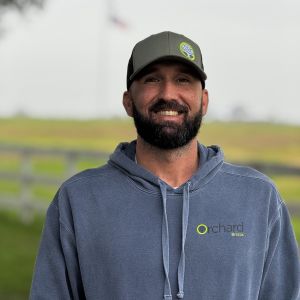
John Dozier
House Manager & Tech
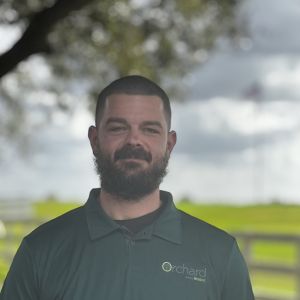
Kevin Manley
Porter
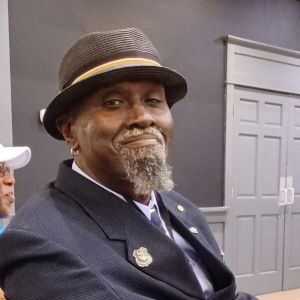
CL Thomas
Program Support
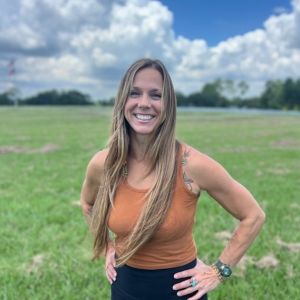
Emily Williams
Yoga Facilitator

David Peterson
Tennis Professional

Charlsie Rives
Financial Controller
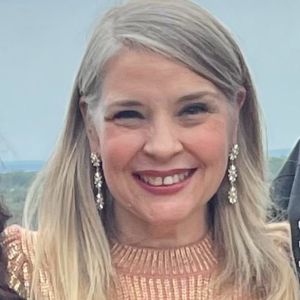
Alissa Parker
Director of Hospitality & Communications

Olivia Presley
Director of Human Resources

Olga Rodriguez
Executive Chef

GayeLynn Hicks
Dietitian
RD, LD

Margarita Torres
Sous Chef

David Villarreal
Line Cook

Eric Fried
Line Cook

Byron Brock
Kitchen Helper

Chantey Quinteros
Housekeeping Supervisor

Ema Acosta
Housekeeper

Jeneses Sanchez
Housekeeper

Cindy Mendez
Housekeeper

Kimberly Burrow
Housekeeper

Chloey Wilson
Housekeeper

Gloria Saucedo
Housekeeper

Jody Plumb-Gonzalez
Beautification & Grounds

Dan Lummis
Founder & CEO

Brandy Lummis
Co-Founder

Clay Brown
Medical Director
M.D.

Marki McMillan
Clinical Director
PhD., LCSW-S
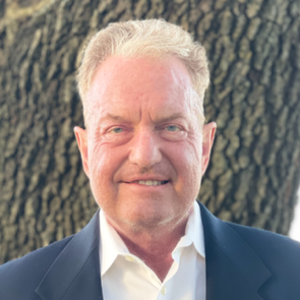
Kirk Lee
Family & Addiction Medicine
M.D.

Dafney Tyler-Lopez
Nurse Manager
RN

Carlos Guerra
Psychiatrist
M.D.
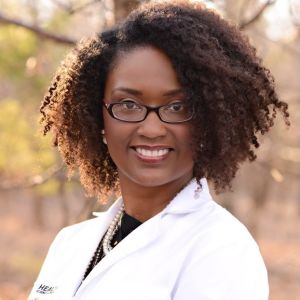
Corrin Torrence
Physician's Assistant
Your Care Options
Specializations
Alcohol
Using alcohol as a coping mechanism, or drinking excessively throughout the week, signals an alcohol use disorder.
Co-Occurring Disorders
A person with multiple mental health diagnoses, such as addiction and depression, has co-occurring disorders also called dual diagnosis.
Drug Addiction
Drug addiction is the excessive and repetitive use of substances, despite harmful consequences to a person's life, health, and relationships.
Executives
Executive treatment programs typically directly support the needs of people who manage businesses and may provide flexible schedules and office space to allow work during treatment.
Professionals
Busy, high-ranking professionals get the personalized treatment they need with greater accommodations for work, privacy, and outside communication.
Who We Treat
Older Adults
Addiction and mental health treatment caters to adults 55+ and the age-specific challenges that can come with recovery, wellness, and overall happiness.
Co-Occurring Disorders
A person with multiple mental health diagnoses, such as addiction and depression, has co-occurring disorders also called dual diagnosis.
Executives
Executive treatment programs typically directly support the needs of people who manage businesses and may provide flexible schedules and office space to allow work during treatment.
Young Adults
Emerging adults ages 18-25 receive treatment catered to the unique challenges of early adulthood, like college, risky behaviors, and vocational struggles.
LGBTQ+
Addiction and mental illnesses in the LGBTQ+ community must be treated with an affirming, safe, and relevant approach, which many centers provide.
Men and Women
Men and women attend treatment for addiction in a co-ed setting, going to therapy groups together to share experiences, struggles, and successes.
Midlife Adults
For adults ages 40+, treatment shifts to focus on the unique challenges, blocks, and risk factors of their age group, and unites peers in a similar community.
Treatment Services
Day Treatment
In a PHP, patients live at home but follow an intensive schedule of treatment. Most programs require you to be on-site for about 40 hours per week.
Detox
Detox fully and safely removes toxic substances from the body, allowing the next steps in treatment to begin with a clean slate.
Intensive Family Program
Some rehabs offer intensive programs for loved ones. Group and individual therapy sessions help everyone heal, and improve family dynamics.
Intensive Outpatient Program
In an IOP, patients live at home or a sober living, but attend treatment typically 9-15 hours a week. Most programs include talk therapy, support groups, and other methods.
Licensed Primary Mental Health
Some primary care providers offer mental health diagnosis and treatment. This can prevent patients from developing more serious conditions.
Outpatient
During outpatient rehab, patients attend a structured treatment program while continuing to live at home.
Residential
In a residential rehab program, patients live onsite, with access to daily treatment and 24-hour care. An average stay is 30-90 days.
Approaches
Evidence-Based
A combination of scientifically rooted therapies and treatments make up evidence-based care, defined by their measured and proven results.
Family Involvement
Providers involve family in the treatment of their loved one through family therapy, visits, or both–because addiction is a family disease.
Personalized Treatment
The specific needs, histories, and conditions of individual patients receive personalized, highly relevant care throughout their recovery journey.
Twelve Step
Incorporating spirituality, community, and responsibility, 12-Step philosophies prioritize the guidance of a Higher Power and a continuation of 12-Step practices.
Therapies
1-on-1 Counseling
Patient and therapist meet 1-on-1 to work through difficult emotions and behavioral challenges in a personal, private setting.
Meditation & Mindfulness
A practiced state of mind that brings patients to the present. It allows them to become fully aware of themselves, their feelings, and the present moment.
Trauma-Specific Therapy
This form of talk therapy addresses any childhood trauma at the root of a patient's current diagnosis.
Rational Emotive Behavior Therapy
A type of cognitive therapy that identifies negative self-defeating thoughts and behaviors, rewriting beliefs to be positive, empowering, and present.
Mindfulness Therapy
This ancient practice can be mental, emotional, and even spiritual. In meditation, you focus your attention on the present moment without judgement.
Attachment-Based Family Therapy
ABFT is a trauma-focused therapy that teaches you to form healthy relationships by rebuilding trust and healing attachment issues formed in childhood.
Aromatherapy
Inhaling or topically applying essential oils can help relieve stress, soothe pains, and relieve emotional distress.
Art Therapy
Visual art invites patients to examine the emotions within their work, focusing on the process of creativity and its gentle therapeutic power.
Conditions We Treat
Grief and Loss
Grief is a natural reaction to loss, but severe grief can interfere with your ability to function. You can get treatment for this condition.
Personality Disorders
Personality disorders destabilize the way a person thinks, feels, and behaves. If untreated, they can undermine relationships and lead to severe distress.
ADHD, ADD
ADHD is a common mental health condition caused by dopamine imbalance. Common symptoms include inattention, hyperactivitiy, and impulsivity.
Anger
Although anger itself isn't a disorder, it can get out of hand. If this feeling interferes with your relationships and daily functioning, treatment can help.
Anxiety
Anxiety is a common mental health condition that can include excessive worry, panic attacks, physical tension, and increased blood pressure.
Bipolar
This mental health condition is characterized by extreme mood swings between depression, mania, and remission.
Burnout
Burnout entails mental and physical exhaustion, and leads to a severe lack of fulfillment. This condition is often caused by overwork.
Codependency
Codependency is a pattern of emotional dependence and controlling behavior. It's most common among people with addicted loved ones.
Depression
Symptoms of depression may include fatigue, a sense of numbness, and loss of interest in activities. This condition can range from mild to severe.
Substances We Treat
Alcohol
Using alcohol as a coping mechanism, or drinking excessively throughout the week, signals an alcohol use disorder.
Benzodiazepines
Benzodiazepines are prescribed to treat anxiety and sleep issues. They are highly habit forming, and their abuse can cause mood changes and poor judgement.
Chronic Relapse
Consistent relapse occurs repeatedly, after partial recovery from addiction. This condition requires long-term treatment.
Co-Occurring Disorders
A person with multiple mental health diagnoses, such as addiction and depression, has co-occurring disorders also called dual diagnosis.
Cocaine
Cocaine is a stimulant with euphoric effects. Agitation, muscle ticks, psychosis, and heart issues are common symptoms of cocaine abuse.
Drug Addiction
Drug addiction is the excessive and repetitive use of substances, despite harmful consequences to a person's life, health, and relationships.
Ecstasy
Ecstasy is a stimulant that causes intense euphoria and heightened awareness. Abuse of this drug can trigger depression, insomnia, and memory problems.
Heroin
Heroin is a highly addictive and illegal opioid. It can cause insomnia, collapsed veins, heart issues, and additional mental health issues.
Psychedelics
Hallucinogenic drugs—like LSD—cause euphoria and increased sensory experiences. When abused, they can lead to depression and psychosis.
Languages
Aftercare
Care Designed for Your Needs
Personal Amenities
Amenities
Special Considerations
Executive Program
Addiction and mental health treatment for executives typically involves high discretion, greater technology access, and more private, 1-on-1 care.
Flexible technology policies
Centers with flexible technology policies allow professionals to stay in touch with work and give patients a greater sense of connection and normalcy.
Activities
Yoga
Yoga is both a physical and spiritual practice. It includes a flow of movement, breathing techniques, and meditation.
Off-Site Activities
Off-Site Amenities
Learn More About the Center
Explore The Orchard on the Brazos
The Orchard on the Brazos provides 6 unique housing areas for men and women, with all private rooms and gorgeous designs.
Admissions Process - What to Expect at Rehab
Learn more about what to expect at The Orchard on the Brazos, including a general schedule of weekday and weekend care.
Testimonials From Alumni
See what Orchard on the Brazos’ alumni have to say about their treatment experience and the effect it had on their lives, work, and families.
Extended Care at The Orchard on the Brazos
They offer a range of extended care and aftercare options, from long-term housing to intensive outpatient care.
What people are saying
Treatment
5.0
Accommodations
5.0
Food & Nutrition
5.0
Value
5.0
Chris M.
Treatment in 2020 • (90 days) • Reviewed 01/27/23
Former Client
•Oil & Gas Professional
•Texas





